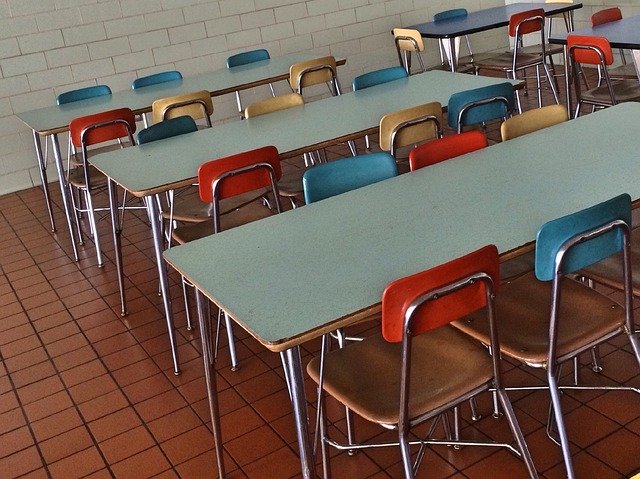Sending a food-allergic child to school may seem like a dangerous decision. While parents do what they can to keep allergens away from their child at home, what happens in school is anyone’s guess. Though you may be worried about how to keep your child safe at school, there are a few steps you can take to manage your child’s food allergies in school. Read on for the best tips for parents of students with food allergies.
1. Speak with the Staff
One of the best ways for parents to protect their children from food allergies during school is to speak with the school’s staff. At the beginning of a new school year and throughout the year, be sure to reach out to the school nurse, teachers, cafeteria staff, and principal to share details about your child’s allergies. The more you communicate with the school staff about these concerns, the more they’ll keep this information in mind.
In addition to the above staff, Premier Allergy recommends sharing information about your child’s allergy with transportation staff, maintenance staff, coaches, and other parents. These individuals will help to monitor your little one’s exposure to food and meals before, during, and after school.
2. Create an Allergy Action Plan
Another step parents should take when protecting their children from food allergies in school is to create an allergy action plan. An allergy action plan is an emergency plan that lets other adults know what your child’s triggers are, what medication they take, and the steps to take in the event of an emergency. In addition to providing school staff with this plan, also ensure that your child’s epinephrine is kept safely on campus or in your child’s backpack.
3. Make Safe Snacks
Children with food allergies often already carry safe lunches that their parents pack for them. However, it isn’t uncommon for children to receive snacks for another student’s birthday or a special treat during school. If it is unclear whether the special food contains allergens, it’s best for your child to eat their own snacks.
Experts from Premier Allergy suggest that parents give their child’s teacher “safe snacks” that they can give to the child whenever there is special snack time in class. This way, your child can take part in the festivities without being triggered by allergens.
4. Educate Your Child
Certain children may be too young to fully understand what a food allergy means. Despite this, food allergy education is a major part of prevention. Parents should teach their children about preventing allergic reactions, how to advocate for themselves, and tips for learning to recognize a dangerous situation.
Allergists recommend that parents teach their children to avoid food that comes with no ingredients label. This way, your child will be trained to watch out for home-baked items that may contain allergens.
5. Prepare for the Lunchroom
Parents of children that regularly eat in the lunchroom need to make sure the lunchroom staff and food service director are all aware of these allergies. Be sure to discuss the school’s approach to feeding food-allergic children and assess whether or not it is a good idea for your child.
A good way to make sure the lunchroom team members are always aware of your child’s allergy is to provide them with a picture. With your child’s picture posted behind the register or counter, the cafeteria staff will be able to easily monitor which child has food allergies and the type of food they receive.
6. Volunteer as a Chaperone
It’s easier for food-allergic children to thrive in the controlled environment of their school. However, in the event of a field trip, teachers and chaperones may forget about your child’s allergy. While it’s a good idea to remind the school and chaperones prior to a trip, parents may consider volunteering as chaperones. As a chaperone, you’ll be able to stay near your child and carefully monitor where and what they eat during the trip.
With proper management of food allergies, ample preparation, and good communication, parents can keep their food-allergic children safe wherever they go. Make sure your children are safe at school in regards to food allergies by following the aforementioned strategies

Recent Comments